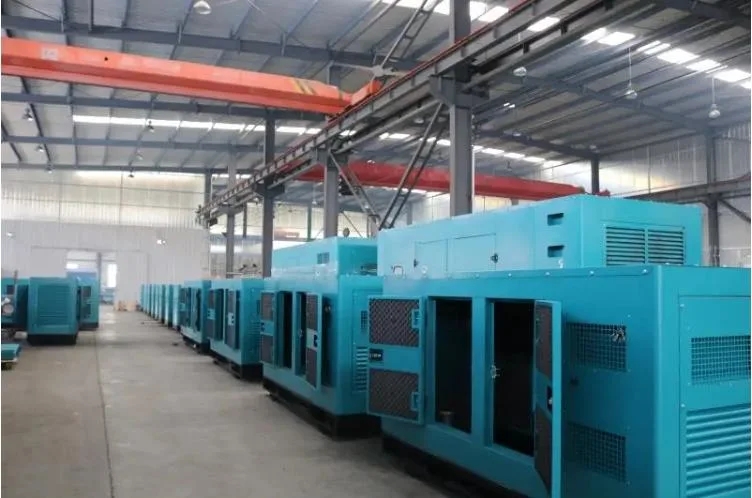Introduction
Diesel generators play a crucial role in providing backup power during emergencies or in off-grid locations where access to the main power grid is limited. These versatile machines are relied upon by various industries, businesses, and residential properties to ensure uninterrupted power supply. While diesel generators are highly efficient and effective, they also pose certain safety risks if not properly maintained and operated. Therefore, it is essential to understand and implement safety standards to prevent accidents, protect lives, and safeguard property.
In this comprehensive guide, we will delve into the safety standards that must be followed when using diesel generators. We will explore the various components of a diesel generator system, potential hazards associated with their operation, and best practices for ensuring safety. By following these guidelines, users can minimize risks and maximize the benefits of their diesel generators.

Understanding Diesel Generators
Diesel generators are a type of combustion engine that converts diesel fuel into electrical energy. They consist of several key components, including the engine, alternator, fuel system, cooling system, exhaust system, and control panel. The diesel engine is responsible for converting the chemical energy in diesel fuel into mechanical energy, which drives the alternator to produce electricity. The alternator, in turn, converts mechanical energy into electrical energy that can be used to power electrical devices and equipment.
While https://www.lkpowerplant.com/product/special-offer-reliable-high-power-200kw-efficient-diesel-generator-set-for-industrial-use/ are known for their reliability and efficiency, they also present certain safety challenges that must be addressed. These challenges include fire hazards, electrical shocks, carbon monoxide poisoning, fuel leaks, and mechanical failures. Failure to address these risks can result in property damage, injuries, and even loss of life. Therefore, it is essential to adhere to strict safety standards when operating diesel generators.
Safety Standards for Diesel Generators
1. Installation
Proper installation of a diesel generator is crucial for ensuring safety and optimal performance. The generator should be installed in a well-ventilated area with adequate space for air circulation and maintenance access. It should be placed on a level surface to prevent fuel spills and ensure stability during operation. The installation should comply with local building codes and regulations to prevent hazards such as fire or electric shock.
2. Ventilation
Proper ventilation is essential when operating a diesel generator to prevent the buildup of toxic gases such as carbon monoxide. Generators should never be operated indoors or in enclosed spaces, as this can lead to carbon monoxide poisoning. Adequate ventilation should be provided to ensure the safe dispersal of exhaust fumes away from occupied areas.
3. Fuel Storage and Handling
Proper fuel storage and handling are critical for preventing fuel leaks, spills, and fires. Diesel fuel should be stored in approved containers in a well-ventilated and secure location away from ignition sources. Refueling should be done with caution to avoid spills and ensure that the generator is turned off and cool before adding fuel.
4. Electrical Safety
Diesel generators produce high voltage electricity, which can pose a significant risk of electric shock if not handled properly. All electrical connections should be made by qualified personnel following safety guidelines and regulations. Grounding of the generator and electrical components is essential to prevent electrical faults and ensure safe operation.
5. Maintenance and Inspections
Regular maintenance and inspections are essential for ensuring the safe and reliable operation of diesel generators. Routine checks should be performed on components such as the engine, alternator, cooling system, fuel system, and electrical connections. Any signs of wear, damage, or malfunction should be addressed promptly to prevent accidents and breakdowns.
6. Fire Safety
Diesel generators can pose a fire hazard if not properly maintained or operated. Fire extinguishers should be readily available near the generator to quickly respond to any potential fires. Regular cleaning of the generator and surrounding area should be done to prevent the accumulation of flammable materials.
7. Overloading and Proper Use
Diesel generators should never be overloaded beyond their rated capacity, as this can lead to overheating, mechanical failures, and electrical hazards. Users should follow the manufacturer's guidelines for proper use and maintenance of the generator to ensure safe and efficient operation.
8. Emergency Shutdown Procedures
In the event of an emergency or malfunction, users should be familiar with the shutdown procedures for the diesel generator. Emergency stop buttons should be easily accessible and clearly marked to allow for quick and safe shutdown in case of an emergency.
9. Training and Education
Proper training and education of personnel who will be operating or maintaining the diesel generator are essential for ensuring safety. Users should be trained on the proper operation, maintenance, and safety procedures related to the generator to prevent accidents and injuries.
Conclusion
Diesel generators are valuable assets that provide backup power in various settings, but they also pose safety risks that must be addressed. By following the safety standards outlined in this guide, users can mitigate these risks and ensure the safe and efficient operation of their diesel generators. Proper installation, ventilation, fuel storage and handling, electrical safety, maintenance, fire safety, and emergency procedures are key components of a comprehensive safety plan for diesel generators. By prioritizing safety and adhering to best practices, users can protect lives and property while maximizing the benefits of their diesel generators.
